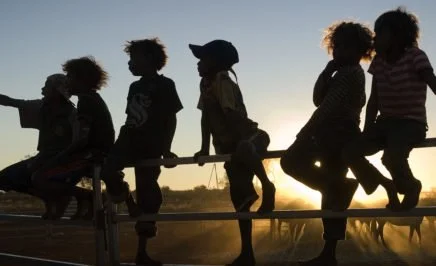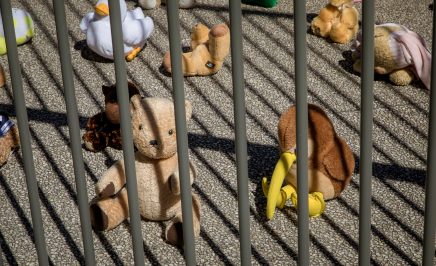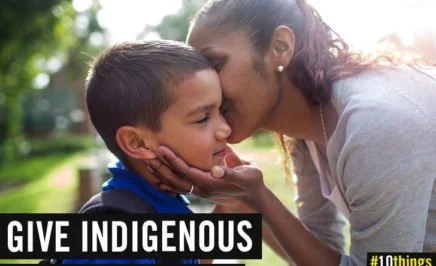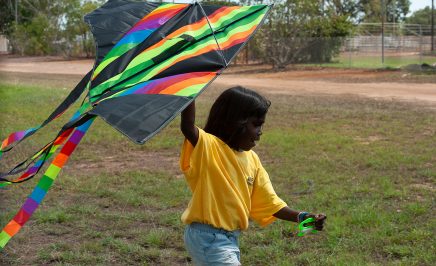Australia is lagging far behind the rest of the world in locking up little children as young as 10 years old, said health, legal, Indigenous and children’s experts at a roundtable with Shadow Assistant for Indigenous Affairs Senator Pat Dodson and Shadow Attorney General Mark Dreyfus in Canberra today.
The Australian Indigenous Doctors’ Association, National Congress of Australia’s First Peoples, UNICEF, Amnesty International, Human Rights Law Centre and National Aboriginal and Torres Strait Islander Legal Services were among those today calling on the ALP to commit to raising the minimum age of criminality to at least 14.
Across Australia, children as young as 10 are charged, brought before a court, sentenced and imprisoned. This is in stark contrast with the international community, which has a median age of criminality of 14 years old.
China, Russia, Germany, Spain, Italy, Japan, Viet Nam, Argentina, Colombia, Laos, Kazakhstan, Sierra Leone, Azerbaijan, Cambodia and Rwanda are some of the many countries with a minimum age of 14 or older.
Locking up kids increases offending
Research shows that children’s brains are still developing, especially the parts that regulate judgement, decision-making and impulse control. Children are not able to foresee the consequences of any action, and cannot fully understand the criminal nature of their behaviour.
Applying criminal penalties to young children increases the likelihood they will offend later in life, with children arrested before the age of 14 three times more likely to commit offences as adults than children arrested after 14. Many children entering the criminal justice system become trapped, and are less likely to complete their education and find employment.
“All children deserve the best chance at leading a fulfilling and long life. Contact with the adult criminal justice system at an age as young as 10 obviously disrupts this chance. AIDA is committed to culturally strong community-led solutions, justice reinvestment and using the law to uphold the safety and wellbeing of Aboriginal and Torres Strait Islander children and families. We see this as an essential component of Closing the Gap and breaking the cycle of systemic disadvantage that impacts on our people and communities, in particular our children,” said Craig Dukes, Australian Indigenous Doctors’ Association CEO.
Community support is the answer
“As the Northern Territory Royal Commission found, locking up vulnerable children as young as 10 causes them serious harm at a crucial time of development, when they are being shaped into the adults they will become,” said Alison Gibbins, Amnesty International Australia’s Deputy National Director.
The Royal Commission identified that most children did not reoffend when they received the support and services they needed through community-based alternatives, in particular diversion.
“Children need the guidance and support of their families and communities to grow and thrive, so they don’t get stuck in the quicksand of the justice system for life”, said Cheryl Axleby, Co-Chair of NATSILS.
Background
In 2016-2017, almost 9,000 children aged 10 to 13 were dealt with in the criminal justice system, and around 600 were locked up in children’s prisons.
Indigenous children are most affected by Australia’s punitive approach, being 25 times more likely to be locked up than non-Indigenous children. In 2016-2017, two thirds of the 10-13 year olds in detention during the year were Indigenous.
Disadvantaged children are vastly more likely to come into contact with the justice system at a young age. In 2014-15, 60% of those aged 10 at their first youth justice supervision were also in child protection, compared with only 9.4% of those aged 17.
The UN Committee on the Rights of the Child has consistently advocated for a minimum age of 14 or older, and, along with the Committee on the Elimination of Racial Discrimination, has criticised Australia for imprisoning such young children.
The organisations and experts represented in Canberra today included:
- Amnesty International
- Australian Indigenous Doctors’ Association
- Chris Cunneen, Professor of Criminology, University of Technology, Sydney
- Human Rights Law Centre
- Justin Mohamed, Commissioner for Aboriginal Children & Young People, at the Victorian Commission for Children & Young People.
- National Aboriginal Community Controlled Health Organisations
- National Aboriginal and Torres Strait Islander Legal Services
- National Congress of Australia’s First Peoples
- Oxfam Australia
- SNAICC – National Voice for our Children
- UNICEF




